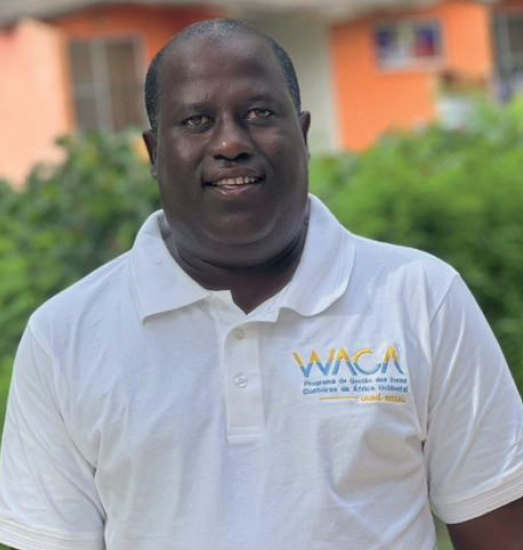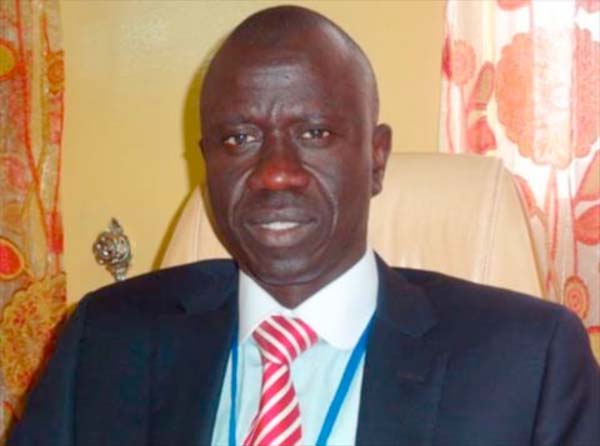
Detail
MEET OUR TEAM
We have teams working at national, regional, and program levels. Together, they provide countries with access to technical expertise and finance to support the sustainable development of the coastal zone. Our teams are here to accelerate action
The West Africa Coastal Areas (WACA) Resilience Investment Project (ResIP) represents a unified regional approach to tackling the complex and interconnected challenges of coastal degradation in West Africa. By promoting cross-country collaboration and integrating strategies across multiple sectors, WACA ResIP seeks to strengthen the resilience of vulnerable coastal communities and ecosystems, addressing critical issues such as erosion, flooding, and environmental pollution.
Regional Integration and Collaboration
Recognizing that coastal issues transcend national boundaries, WACA ResIP promotes regional cooperation among West African countries. This approach facilitates the sharing of knowledge, resources, and best practices, enabling countries to collectively tackle common challenges. The project engages regional institutions like the West African Economic and Monetary Union , along with IUCN, PRCM, Ecologica Monitoring Center, the Adbijan Convention and RAMPAO to coordinate efforts and ensure cohesive action across the region.
Comprehensive Approach to Coastal Resilience
WACA ResIP employs a holistic strategy that combines policy reform, institutional strengthening, and on-the-ground physical and social interventions. By addressing the root causes of coastal degradation and implementing sustainable solutions, the project aims to protect and restore vital coastal ecosystems using soft and hard solutions. This includes activities such as dune stabilization, mangrove restoration, and the construction of protective infrastructure.
Community-Centric Interventions
At the heart of WACA ResIP's efforts is the well-being of coastal communities. The project emphasizes community engagement, ensuring that local populations are active participants in the planning and implementation of resilience measures. This participatory approach not only empowers communities but also ensures that interventions are culturally appropriate and sustainable.
Leveraging International Support
The success of WACA ResIP is bolstered by significant international support. The World Bank has approved substantial financing packages to support the project's objectives, including a $210 million package in 2018 and an additional $246 million in 2022. These funds are instrumental in scaling up resilience efforts and expanding the project's reach to more countries within the region. The program also involve a broad range of partners, joining WACA activities along the way, such as French Developent Agency, French Global Environmental Facility, Nordic Development Fund and the Netherlands Enterprise Agency.
Expanding Reach and Impact
Initially involving six countries—Benin, Côte d’Ivoire, Mauritania, São Tomé and Príncipe, Senegal, and Togo—WACA ResIP has expanded to include The Gambia, Ghana, and Guinea-Bissau. This expansion reflects the project's commitment to addressing coastal challenges on a regional scale, ensuring that more communities benefit from enhanced resilience against climate-related threats. The team is now working on preparing a new operation, with a more specific focus on the Blue Economy.
Innovative Financing Mechanisms
WACA ResIP leverages innovative financing mechanisms to support its initiatives. This includes mobilizing private sector finance for blue carbon credits, as announced at the 2022 United Nations Climate Change Conference (COP27). Such mechanisms are crucial for sustaining long-term resilience efforts and promoting sustainable economic development in coastal areas.
Program

Chakib Jenane
Regional Director for Sustainable Development, Western and Central Africa, World Bank

Boutheina Guermazi
Regional Integration Director, World Bank

Ellysar Baroudy
Practice Manager, West Africa, World Bank

Veruschka Schmidt
WACA Program Leader – Project Team Leader for Guinea Bissau

Cecile Lorillou
Project Team Leader, The Gambia

Ann-Sofie Jespersen
Social Development Specialist

Koffi Hounkpe
Project Team Leader, WACA Togo

Drita Dade
Project Team Leader, WACA Nigeria

Manuela Ravina da Silva
WACA ResIP 1 Administrator & Project Team Leader Benin and Cote d’Ivoire

Ruma Tavorath
Sr. Environment Specialist, Team Task Leader, Ghana

Madjiguene Seck
Senior Partnership Specialist

Manon Pascale Cassara
WACA Project Team – Senegal, Mauritania, Regional & WACA Platform

Veronica Yolanda Jarrin
WACA Project Team for Regional Component

Juan Jose Miranda
STP WACA+ Project Team Leaders

Juliana Castano
STP WACA+ Project Team Leaders

Arame Tall
Project Team Leader for WACA Senegal and Mauritania
National

Pr. Mohamed Lemine Baba
Project Coordinator, WACA Mauritania

Peter Dery
Project Coordinator, WACA Ghana

WACA Guinea-Bissau
Project Coordinator, WACA Guinea-Bissau

Dr. Lamin Sanyang
Coordinator for The Gambia

Jean Baptiste Kassim
Interim PIU Coordinator

Dr. Adou Rahim Alimi Assimiou
Project Coordinator, WACA Togo

Arlindo de Carvalho
Project Coordinator, WACA Sao Tome and Principe

Cl. Cheikh Daouda Diallo
Project Coordinator, WACA Senegal

Elias Hamidou SEKO
Project Coordinator , WACA Benin
Regional
Dr. Ahmed Senhoury
Executive Director, Regional Partnership for Coastal and Marine Conservation

Christophe Deguenon
Director of Environment and Water Resources, West African Economic and Monetary Union

Isidore AMAHOWE
Executive Secretary, Regional Network of Marine Protected Areas in West Africa

Nana Toure
Regional Director, IUCN

Pr. Denis Worlanyo Aheto
Coordinator, Africa Center of Excellence for Coastal Resilience

Coordinator WACA Regional Implementation Support Unit
Coordinator WACA Regional Implementation Support Unit

Lamine Ndiaye
Regional Coordinator, Dakar Center for Ecological Monitoring

Pr. Cheikh Mbow
General Manager, Dakar Center for Ecological Monitoring
